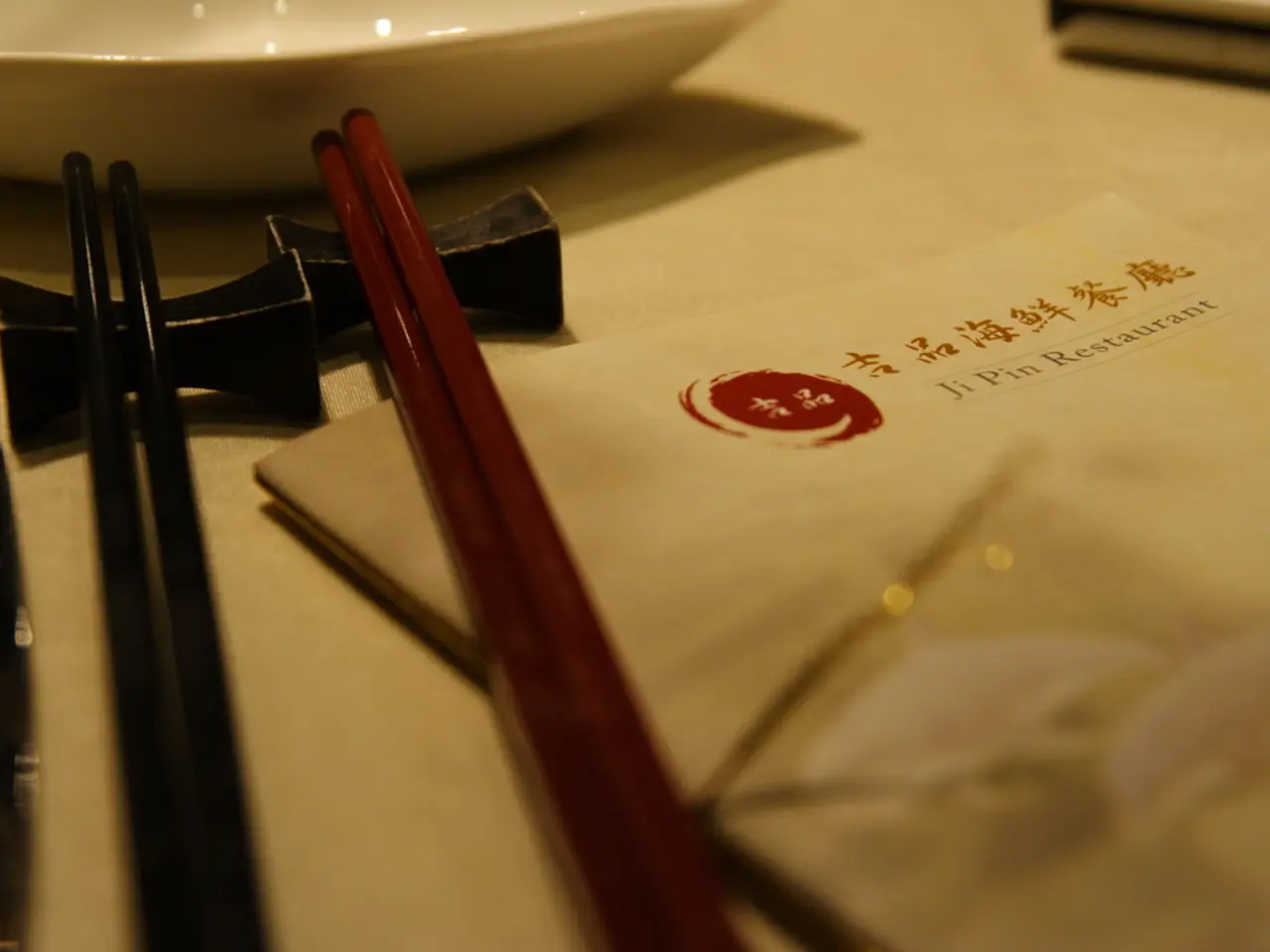Anxiety Relief Through 6 Identified Pressure Points Illustrated in Pictures
In the realm of alternative medicine, acupressure, an age-old practice deeply rooted in Chinese medicine, is gaining recognition for its potential benefits in managing anxiety. This ancient technique, which involves applying pressure to specific points on the body, has been used for centuries and is now being scientifically explored for its efficacy in relieving anxiety symptoms.
One such point, Hegu (LI4), located in the webbed area between the thumb and index finger, is gaining particular attention. This point is known to help with anxiety, pain, and headaches, especially tension headaches. To activate Hegu, firm, circular pressure is applied for up to 5 minutes. Other effective points include Shen Men (HT7), Yin Tang (EXHN3), Shou San Li (LI10), Great Abyss (LU9), and Governor Vessel (DU20), each with its unique role in alleviating anxiety symptoms.
A 2018 review of 13 studies found that real acupressure significantly reduced symptoms of anxiety and stress in both healthy individuals and those with chronic illnesses, suggesting it can be a valuable tool in managing anxiety and promoting relaxation. This finding is supported by related acupuncture research, which consistently shows benefits for anxiety relief.
A 2012 clinical trial assessed the ability of acupressure to ease anxiety relating to surgery, with real acupressure showing larger reductions in anxiety and improved physical measures compared to fake acupressure. Similarly, a 2015 study assessed the effects of acupressure on overall emotional well-being in people undergoing dialysis, finding a reduction in depression and stress, and an increase in psychological well-being.
However, it's important to note that many studies on acupressure are small or poorly designed, making it difficult to draw reliable conclusions. Despite this, preliminary research suggests that acupressure may help with anxiety.
The mechanism of anxiety relief may relate to how stimulating points on meridians affects the brain and nervous system. Techniques like Emotional Freedom Techniques (EFT), which involve tapping similar to acupressure points, have been shown to reduce cortisol (stress hormone) levels by about 24%, indicating a calming effect on the brain’s stress response.
In the real world, community acupuncture programs provide practical evidence of substantial reductions in anxiety, with one project reporting a 41.1% decrease post-treatment across many patients.
While the scientific evidence for acupressure specifically indicates significant anxiety symptom reduction across multiple studies, it's crucial to remember that the overall quality of evidence ranges from moderate to low certainty. More large-scale, rigorous studies focused solely on acupressure are desirable to strengthen conclusions.
In conclusion, acupressure offers a safe, non-pharmacologic option with minimal side effects for anxiety management. It's always advisable to seek a practitioner licensed in one's state for these alternative treatments. Additionally, alternative medicine such as massage, acupuncture, or chiropractic care may also provide relief for some people with anxiety.
- The bipolar health-and-wellness approach could incorporate acupressure, a predictive technique from Chinese medicine, as it has shown potential in managing anxiety and promoting relaxation.
- The Anxiety and Depression Association of America (ADAA) suggests that acupressure therapies and treatments, such as Emotional Freedom Techniques (EFT), can help reduce symptoms of anxiety and depression.
- In the midst of pursuing mental health, one might find relief through acupressure, especially for conditions like ultra-colitis and ulcerative colitis, as the practice has demonstrated an ability to alleviate stress and improve psychological well-being.
- For a holistic approach to health and wellness, fitness and exercise enthusiasts might consider adding acupressure to their self-care routines, as the practice has been found to reduce anxiety and promote mental health.
- While science continues to explore the predictive capabilities of acupressure, it has been observed that specific points like Hegu, Shen Men, Yin Tang, and Governor Vessel play significant roles in alleviating anxiety symptoms and maintaining overall emotional well-being.
- Beyond acupressure, a balanced approach towards nutrition is essential in supporting one's mental health, as certain nutrients have been linked to reducing symptoms of anxiety and depression.
- As research advances, it's hoped that the science behind acupressure, along with other alternative treatments and therapies, will contribute to the development of innovative health-and-wellness solutions, allowing for a more personalized and effective approach to managing anxiety and promoting overall well-being.




